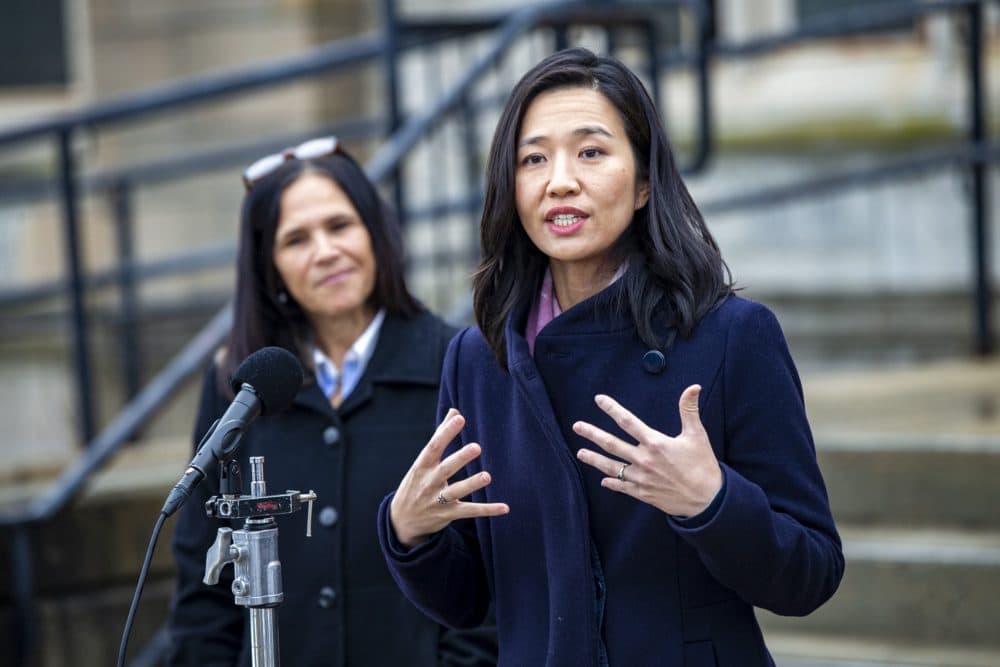Advertisement
Low-income seniors could benefit from Wu's real estate tax bill

Mayor Michelle Wu hopes to extend property tax relief to more seniors.
The mayor signed a bill that included a measure that would increase the threshold of eligibility for low-income seniors who own and live in their homes seeking tax relief through the city’s 41C program.
Currently, seniors who wish to take advantage of the program need a gross income at or below $24,911 if they’re single and $37,367 if they’re married. In addition the estate, excluding the property value, can be no more than $40,000 for single people or $55,000 for married couples.
Those who qualify can receive $1,000 in tax relief for the current fiscal year. Applicants may also be eligible to receive an additional amount up to $1,000 under certain conditions.
Wu’s bill seeks to increase the income eligibility to $47,000 for single people and $53,700 for couples. Estate eligibility requirements would double. The minimum tax exemption would also increase to $1,500 and max out at $3,000.
City officials estimate the number of senior homeowners with eligible income would increase from about 4,600 to about 8,700.
The bill is considered a home rule petition so it has to go through the state legislature and the governor before the city can move forward.
“We are hopeful and determined that, working with state partners, we will seize on recognizing the urgency and the need to act on solutions to keep our families housed,” said Wu.
The provision is included in a bill that again seeks to establish a real estate sales tax in Boston.
Wu want’s to add a tax of up to 2% on sales that exceed $2 million. The tax would kick in after the first $2 million, and generate nearly $100 million annually, according to city estimates. The money would go to the Neighborhood Housing Trust, which creates and preserves affordable housing.
The bill has already received pushback from members of the real estate industry and Gov. Charlie Baker.
The governor told WGBH “as a general rule, I don’t support these sorts of things” and “there is a lot of money around to support housing.”
“We still have billions of dollars of available resources under the ARPA law that we haven’t spent yet and we have a significant state surplus,” said Baker.
CEO of the Greater Boston Real Estate Board Greg Vasil testified against the bill during a city council hearing, and plans to continue his opposition as it is set for the state house.
“It’s a political move to sell hope,” said Vasil. “We’re clearly against the tax because we feel that there’s other ways to come up with the revenue that they need.”
Vasil pointed to the Community Preservation Act. The act passed in 2016 via ballot measure and allowed the city to establish a fund partially financed by a 1% surcharge on residential and business property tax. The revenue is put toward affordable housing, historic preservation, open space, and public recreation.
State Rep. Brandy Fluker Oakley is the state house sponsor for the bill. She said the proposed legislation will allow the city to focus more specifically on affordable housing than the preservation act, and, when considering the pandemic, “it’s not the time for us to be doing the same old same old.”
“I kind of scoff a little bit at folks who are like ‘Oh, let’s just do business as usual and see what happens’ when folks' lives and stability and community health is at stake as a result,” the state representative said.
Fluker Oakley said she plans to file the bill in the coming weeks.
